Coercion is the least efficient means of obtaining order.
Ursula K. Le Guin, The Dispossessed (1974), Chapter 5.
Ursula K. Le Guin
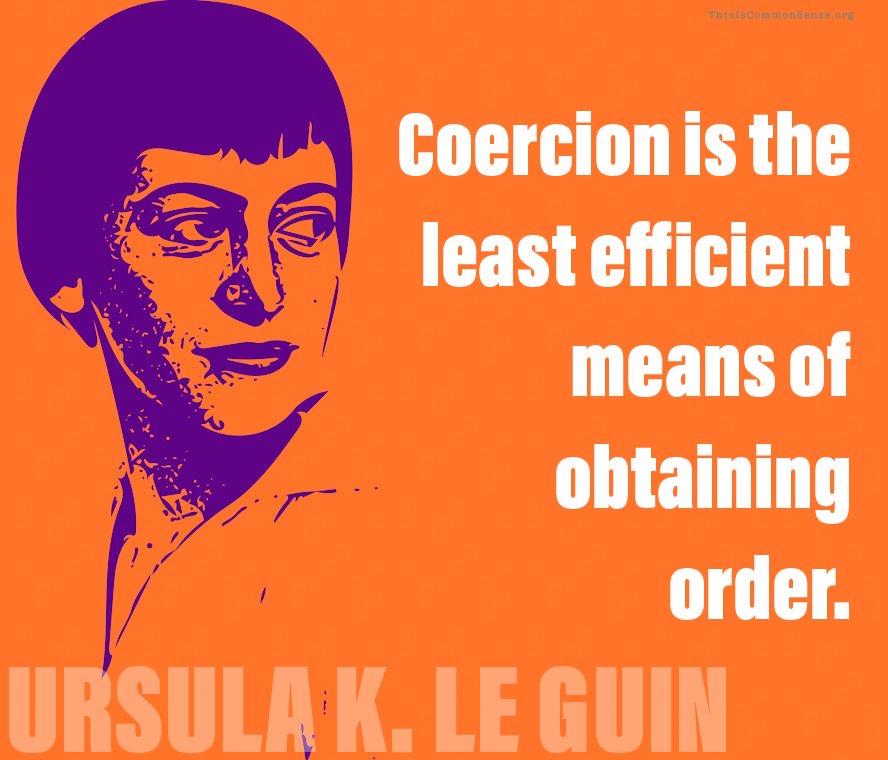

Coercion is the least efficient means of obtaining order.
Ursula K. Le Guin, The Dispossessed (1974), Chapter 5.
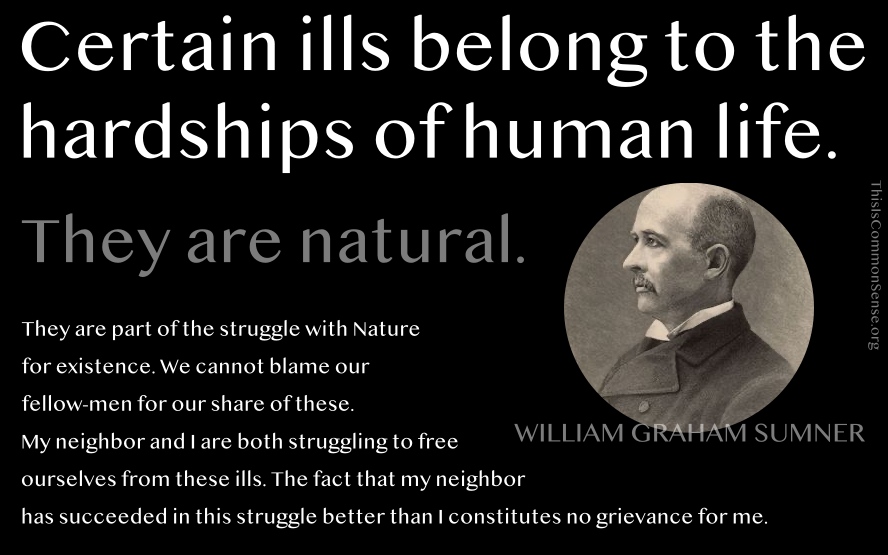
Certain ills belong to the hardships of human life. They are natural. They are part of the struggle with Nature for existence. We cannot blame our fellow-men for our share of these. My neighbor and I are both struggling to free ourselves from these ills. The fact that my neighbor has succeeded in this struggle better than I constitutes no grievance for me.
William Graham Sumner, What Social Classes Owe to Each Other (1883).
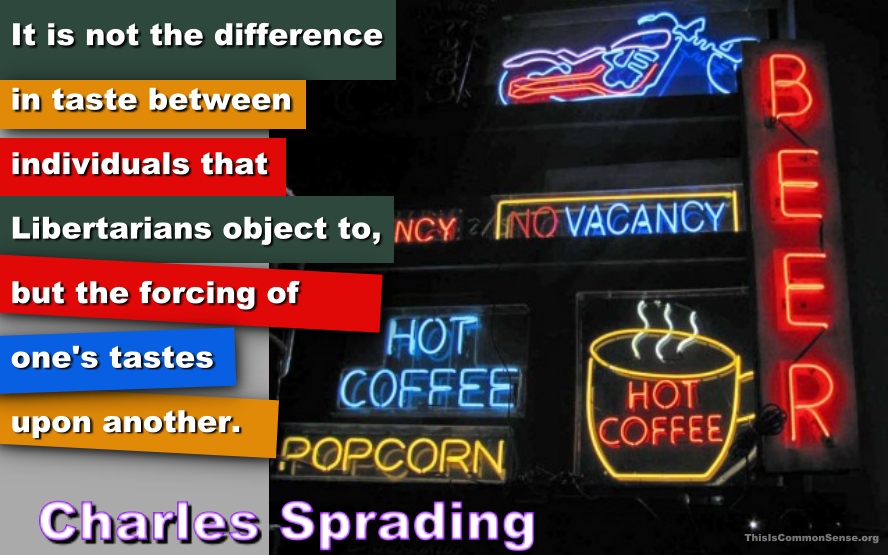
It is not the difference in taste between individuals that Libertarians object to, but the forcing of one’s tastes upon another.
Charles T. Sprading, Liberty and the Great Libertarians (1913), preface.
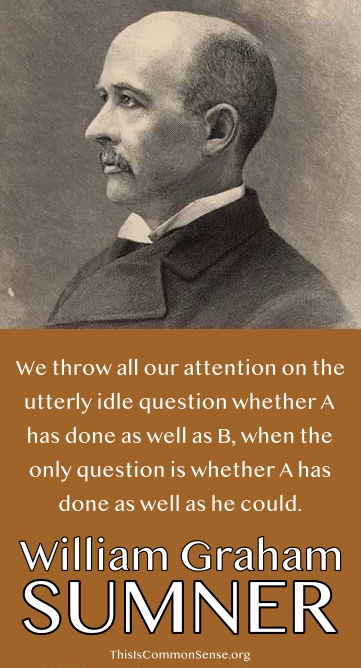
We throw all our attention on the utterly idle question whether A has done as well as B, when the only question is whether A has done as well as he could.
William Graham Sumner, “The New Social Creed,” Earth-Hunger and Other Essays, p. 210 (1913).
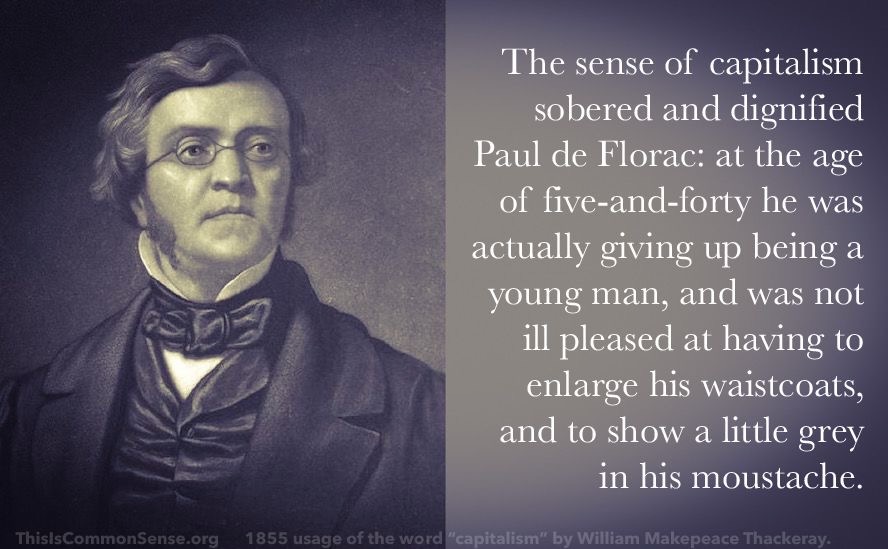
The sense of capitalism sobered and dignified Paul de Florac: at the age of five-and-forty he was actually giving up being a young man, and was not ill pleased at having to enlarge his waistcoats, and to show a little grey in his moustache. His errors were forgotten: he was bien vu by the Government. He might have had the Embassy Extraordinary to Queen Pomaré; but the health of Madame la Princesse was delicate. He paid his wife visits every morning: appeared at her parties and her opera box, and was seen constantly with her in public.
William Makepeace Thackeray, The Newcomes: Memoirs of a Most Respectable Family (1854-1855), Chapter XLVI: “The Hotel de Florac.” Perhaps the very first use of the word “capitalism” in English literature.
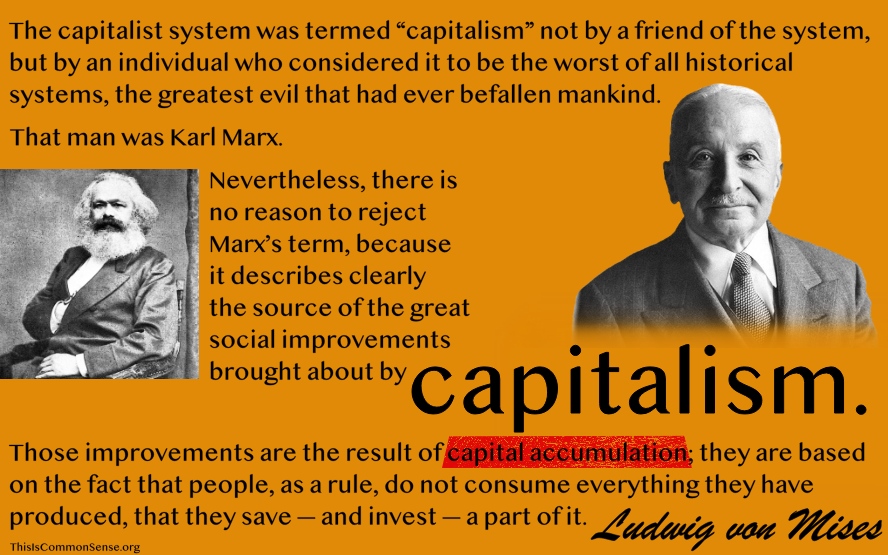
The capitalist system was termed “capitalism” not by a friend of the system, but by an individual who considered it to be the worst of all historical systems, the greatest evil that had ever befallen mankind. That man was Karl Marx. Nevertheless, there is no reason to reject Marx’s term, because it describes clearly the source of the great social improvements brought about by capitalism. Those improvements are the result of capital accumulation; they are based on the fact that people, as a rule, do not consume everything they have produced, that they save — and invest — a part of it.
Ludwig von Mises, Economic Policy: Thoughts for Today and Tomorrow (1979; Third Edition: 2006),